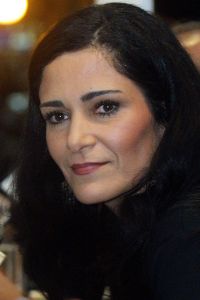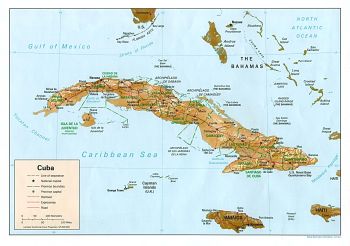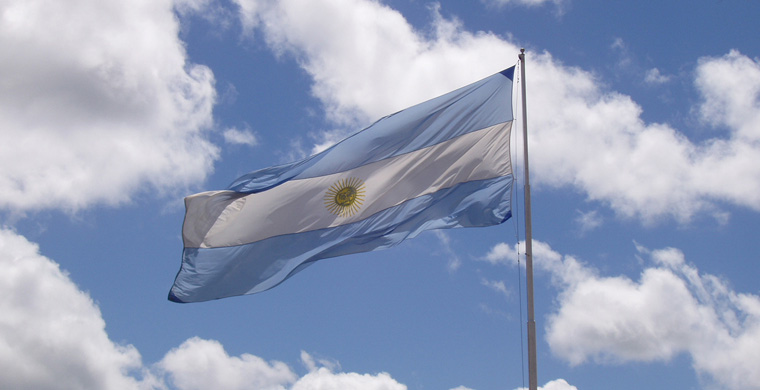English PEN protests the murder of José Alberto Velázquez López, editor of Expresiones de Tulum, who was shot dead in Cancún, Quintana Roo state, on 22 December 2009.
The newspaper had been subject to attack, including death threats, in the previous few months and it is thought that Velázquez’ murder may have been connected to his criticism of local authorities.
 He was the seventh print journalist to be killed in Mexico in 2009 and the 27th since 2004. English PEN calls on the federal and state authorities to investigate this latest killing, along with all other unsolved journalist murders, as a matter of the utmost urgency, and to bring the culprits to justice. It also calls for the implementation of effective journalist protection programmes.
He was the seventh print journalist to be killed in Mexico in 2009 and the 27th since 2004. English PEN calls on the federal and state authorities to investigate this latest killing, along with all other unsolved journalist murders, as a matter of the utmost urgency, and to bring the culprits to justice. It also calls for the implementation of effective journalist protection programmes.
José Alberto Velázquez López, editor and owner of the daily newspaper Expresiones de Tulum, based in Tulum, Quintana Roo state, and a contributor to a local television station, was shot dead in Cancún on 22 December 2009. Velázquez was driving home after a Christmas party for the newspaper staff when he was followed by two men on a motorbike who shot him in the chest, leaving him with serious wounds. He was taken to hospital but died late that night.
For more background, also to express your concern, please follow this link.
• Report by the Committee to Protect Journalists (24 December 2009) (English) (Spanish)
• Report by Reporters Without Borders (24 December 2009) (English) (Spanish)
***
Throughout 2009, the Writers in Prison Committee of International PEN ran a campaign to promote freedom of expression and freedom to write in the Americas. Here is an overview of developments relating to freedom of expression in the Americas and an update on activities:
 MEXICO: Situation for journalists grows ever bleaker – your articles could help protect them.
MEXICO: Situation for journalists grows ever bleaker – your articles could help protect them.
A total of seven print journalists were murdered in Mexico in 2009, all since May.
• 23 September: Norberto Miranda Madrid
• 2 November: José Bladimir Antuna García
• 22 December: José Alberto Velázquez López
Another, female crime reporter has also gone missing, the fifth print journalist to have disappeared in Mexico since 2005:
• 11 November: María Esther Aguilar Cansimbe (Please see the excellent if chilling article by the Committee to Protect Journalists for more information: ‘Michoacán journalists under siege with nowhere to turn’)
According to a Article 19/ CENCOS report from October 2009, the authorities are the main aggressors in over 70% of attacks on freedom of expression in Mexico.
 In a recent article on the dangers of being a journalist in Mexico, the award-winning investigative journalist and activist Lydia Cacho, right, criticizes the Mexican mainstream media for aligning itself with groups close to the state which are responsible for the violence in Mexico and for failing to reflect the true reality of the country. As a result, says Cacho, the international community is largely unaware of what is going on in Mexico.
In a recent article on the dangers of being a journalist in Mexico, the award-winning investigative journalist and activist Lydia Cacho, right, criticizes the Mexican mainstream media for aligning itself with groups close to the state which are responsible for the violence in Mexico and for failing to reflect the true reality of the country. As a result, says Cacho, the international community is largely unaware of what is going on in Mexico.
Cacho has called on foreign journalists to fill this gap by writing about the violence faced by their Mexican counterparts, “because talking about us protects our life and allows us to go on investigating and reporting” (to read the article in Spanish, click here).
CUBA: 26 print journalist remain imprisoned, bloggers attacked
Following the imprisonment of journalist Alberto Santiago Du Bouchet in May, there are now at least 26 writers, independent journalists and librarians in jail in Cuba (see PEN’s Resolution on Cuba passed at Congress in October).
Many continue to suffer from poor health. In particular, the WiPC has recently received reports that the poet and librarian Ricardo González Alfonso is not receiving adequate medical care, including delays in being taken to hospital for glaucoma tests, while journalist Normando Hernández González has been in a prison hospital since October suffering from a heart condition and growths on his gall bladder. González reportedly carried out a hunger strike from 15 November (Day of the Imprisoned Writer) to 10 December (UN Human Rights Day) to call for all prisoners of conscience in Cuba to be released and allowed to leave the island.
A worrying development came in the form of the reported abduction and beating of renowned internet writer Yoani Sánchez and fellow bloggers Orlando Luís Pardo Lazo and Claudia Cadelo while they were on their way to a demonstration in Havana on 6 November. PEN is concerned that the attack may signal the beginning of a new wave of repression against the new generation of bloggers who until now have enjoyed relative freedom.
worrying development came in the form of the reported abduction and beating of renowned internet writer Yoani Sánchez and fellow bloggers Orlando Luís Pardo Lazo and Claudia Cadelo while they were on their way to a demonstration in Havana on 6 November. PEN is concerned that the attack may signal the beginning of a new wave of repression against the new generation of bloggers who until now have enjoyed relative freedom.
A November report by Human Rights Watch found that Raúl Castro has maintained rather than relaxed the regime’s repressive apparatus, continuing to imprison dissidents on a regular basis, particularly for so-called “social dangerousness”, i.e. before they have actually committed any crime. HRW’s report is available in English or Spanish.
English PEN urges to send appeals to the Cuban authorities via diplomatic representatives of Cuba in their countries expressing concern for the health of poet and librarian Ricardo González Alfonso and journalist Normando Hernández González, and requesting that they receive access to appropriate medical care.
If you are interested in corresponding with one of English PEN’s Cuban Honorary Members, please email cat@englishpen.org for further details.
POSITIVE NEWS:
 Argentina: In November, the Argentinean government fulfilled their promise to decriminalize defamation, in line with a 2008 ruling by the OAS’ Inter-American Court on Human Rights (IACHR). This means that no one can now be sentenced to prison in Argentina for defamation or insult. For more information, please click here and here.
Argentina: In November, the Argentinean government fulfilled their promise to decriminalize defamation, in line with a 2008 ruling by the OAS’ Inter-American Court on Human Rights (IACHR). This means that no one can now be sentenced to prison in Argentina for defamation or insult. For more information, please click here and here.
Mexico: In response to ongoing threats against Lydia Cacho (picture above, in Mexico section), on 10 August the IACHR granted precautionary measures for Cacho as well as for her family and the employees of her centre for abused women in Cancun. This means that the Mexican government must take immediate measures to guarantee their safety as well as investigate the threats. Also in August, Cacho was acquitted of civil defamation in a lawsuit brought by a former child victim of textile businessman José Camel Nacif Borge who unsuccessfully sued her for criminal defamation in 2005.


